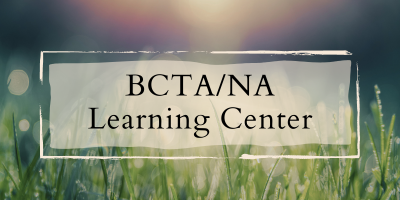Supporting Your Right to Practice: Resources
Information Sources
Talking Points
- See below for how to explain why Biodynamic Craniosacral Therapy should not be required to be licensed under massage therapy law.
Letter Writing Guide
- Steps for Letter Writing:
- Identify your state Senator and Representative: Visit the AMTA State Regulations web page
- Send a letter via email to:
- Your state Senator
- Your state Representative
- Follow these guidelines in your communication:
- Refer to "______ proposed changes to Massage Therapy Law" in the subject line. Make it personal. It’s important to include essential information; but equally important that your letter is distinct from others and does not appear to be a "form letter."
- Clearly state that you are opposed to requiring licensure for Biodynamic Craniosacral Therapy (BCST) and why. Select two or three talking points below and use your own words.
- Keep it brief, keep sentences and paragraphs short.
- Consider asking to meet with your legislator to discuss the bill. If you include this, say that you will be contacting her/him to follow up.
- Send the letter via email, with a copy to the JGRC at [email protected], so we’ll know who's been contacted, and have a record of letters sent
- Follow up with a phone call
Talking Points for Proposed Changes to Massage Therapy Law
The proposed changes to Massage Therapy Law would unfairly require bodywork licensure for Biodynamic Craniosacral Therapy practitioners and teachers.
Biodynamic Craniosacral Therapy should not be required to be licensed because:
- The Biodynamic Craniosacral Therapy Association of North America (BCTA/NA) has regulated BCST practitioners & teachers since 1998, setting and enforcing standards, accrediting training programs, certifying teachers and practitioners.
- BCTA/NA approved-teachers have 1,400 hours of specialized training, practitioners having 700 hours specialized training. Bodywork training is not relevant or applicable to their practice.
- Biodynamic Craniosacral Therapy (BCST) is based on the work of William Garner Sutherland, DO. BCST recognizes an essential ordering principle carried in the rhythms of the body's inherent life force, which Dr. Sutherland referred to as the "Breath of Life."
- The ability of cells and tissues to express their primary respiratory motion is a critical factor in determining our state of health - when these rhythms are expressed in fullness and balance, health and well-being naturally follow. BCST helps resolve the trapped forces that underlie and govern patterns of disease and fragmentation in both body and mind.
- This involves the BCST practitioner "listening through their hands" to the body's subtle rhythms and any patterns of inertia or congestion. The person receiving the session is fully clothed, sitting in a chair to start and then lying on a massage table in a supported and comfortable way.
- Through the development of subtle palpation skills, the BCST practitioner can read the story of the body, identify places where issues are held and then follow the body’s natural priorities for healing as directed by the patient¹s physiology. In finding your own words, please use our Standards of Practice as a resource: https://www.craniosacraltherapy.org/standards-for-practice
- The practice of Biodynamic Craniosacral Therapy is exempted from massage therapy and/or bodywork licensure requirements in statute in 4 states.
The bill to create bodywork licensure should not be passed because:
- Biodynamic Craniosacral Therapists are accountable to the Biodynamic Craniosacral Therapy Association of North America through Standards of Practice, Service Mark, Code of Ethics, and Educational Curriculum.
- The definition of bodywork is inaccurate.
- The need for oversight of BCST and other professions has not been demonstrated, and is an unnecessary use of scarce state resources.
- The law would limit public access to beneficial services.
- The law includes requirements for training and certification programs that do not exist and/or that would be inappropriate for BCST practitioners
- Requiring BCST practitioners and teachers to get bodywork training is unnecessary, costly and would limit small business opportunities in your state.
- Requiring BCST practitioners and teachers to identify themselves as bodyworkers would confuse the public and detract from professionalism.
A bodywork board would not have the knowledge or expertise to set standards for Biodynamic Craniosacral therapy, and this has been done successfully for over 20 years by the Biodynamic Craniosacral Therapy Association of North America.
JGRC Quick Links
|


